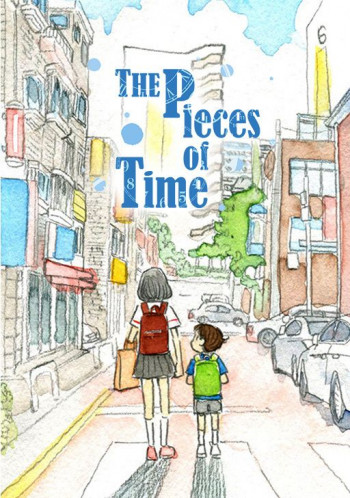Summary

Blame It on the Duke
by Lenora Bell
Have you heard?
The future Duke of Barrington has just been gambled away by his father. To an heiress!
The delicious details thus far...
Nicolas, Lord Hatherly, never intended to marry—nor add to the “mad” Hatherly line—but now he must honor his father’s debt to a social-climbing merchant or lose the family estate.
A notoriously wild marquess, won by her father at a game of cards, is the very last thing Miss Alice Tombs wants. She’s spent the last three seasons repelling suitors in spectacular fashion so she’d be at liberty to explore the world. She’ll just have to drive this one away as well.
Until Nick proposes an utterly tempting arrangement: one summer together to prove the legitimacy of their union, then Alice is free to travel while Nick revels in the time he has left before the Hatherly Madness takes hold.
It will be easy to walk away after a few months of make-believe wedded bliss—won’t it? Alice and Nick are about to find out...one sultry night at a time.
This ought to be fun . . .
.
Read
Blame It on the Duke on http://kissnovel.net
Martial Peak Reviews
Lenora Bell’s Blame It on the Duke is a delightful romp through the world of Regency romance, filled with witty banter, unexpected twists, and a charming exploration of love and duty. The premise itself is intriguing: Nicolas, Lord Hatherly, finds himself bound by his father's reckless gambling to marry Miss Alice Tombs, a woman who has spent her seasons evading suitors in order to pursue her own dreams of adventure. This setup not only creates immediate tension but also sets the stage for a captivating exploration of character and relationship dynamics.
At the heart of the story is the character of Nicolas, who embodies the archetype of the reluctant hero. Initially, he is portrayed as a man burdened by the weight of his family’s legacy and the impending doom of the “Hatherly Madness,” a hereditary condition that looms over him like a dark cloud. His internal struggle is palpable; he is torn between his desire for freedom and the obligation to uphold his family’s honor. Bell does an excellent job of fleshing out Nicolas’s character, allowing readers to witness his transformation from a carefree marquess to a man who begins to understand the value of commitment and love.
Alice Tombs, on the other hand, is a breath of fresh air in the genre. She is not the typical damsel in distress; rather, she is a fiercely independent woman with aspirations that extend beyond the confines of marriage. Her determination to escape the societal expectations placed upon her makes her a relatable and inspiring character. Alice’s initial resistance to Nicolas and her attempts to drive him away are both humorous and poignant, showcasing her inner conflict between her dreams of exploration and the unexpected chemistry that develops between her and her betrothed.
Their relationship is the crux of the novel, and Bell masterfully crafts their dynamic with a blend of tension and tenderness. The arrangement they strike—a summer of pretend marriage—serves as a clever narrative device that allows both characters to explore their feelings without the immediate pressure of a lifelong commitment. This setup not only adds an element of suspense but also creates opportunities for character growth. As they navigate their make-believe wedded bliss, readers are treated to a series of enchanting moments that deepen their connection and challenge their preconceived notions about love and partnership.
One of the standout themes in Blame It on the Duke is the idea of freedom versus obligation. Both Nicolas and Alice grapple with their desires and the expectations placed upon them by society and family. This theme resonates deeply in a world where social status and family legacy often dictate personal choices. Bell’s exploration of this theme is nuanced; she does not shy away from the complexities of duty, yet she also celebrates the transformative power of love. The evolution of Nicolas and Alice’s relationship serves as a testament to the idea that true partnership can provide the freedom to be one’s authentic self.
The pacing of the novel is another strong point. Bell expertly balances moments of tension with lighthearted exchanges, ensuring that readers remain engaged throughout. The witty dialogue is a highlight, filled with sharp repartee that showcases the characters’ personalities and their growing affection for one another. The chemistry between Nicolas and Alice is electric, and their interactions are laced with a delightful mix of humor and longing that keeps the reader invested in their journey.
Visually, Bell’s writing is vivid and evocative, painting a rich picture of Regency England. The settings are described with enough detail to transport readers to the era without overwhelming them with excessive descriptions. The social gatherings, the opulent ballrooms, and the intimate moments shared between the characters are all rendered with a sense of authenticity that enhances the reading experience.
In comparison to other works in the genre, such as Julia Quinn’s The Bridgertons series or Tessa Dare’s novels, Blame It on the Duke stands out for its unique premise and character-driven narrative. While many Regency romances focus heavily on societal pressures and matchmaking, Bell’s story delves deeper into the personal aspirations of her characters, making it a refreshing addition to the canon. The interplay between humor and heartfelt moments is reminiscent of Quinn’s style, yet Bell carves out her own niche with a focus on self-discovery and the complexities of modern love within a historical context.
Overall, Lenora Bell’s Blame It on the Duke is a captivating read that combines humor, romance, and a thoughtful exploration of personal freedom. The characters are well-developed, the plot is engaging, and the themes resonate with contemporary readers. It’s a story that not only entertains but also encourages reflection on the nature of love and the importance of staying true to oneself. For those who enjoy a blend of wit and romance in their historical fiction, this book is a must-read.
























Reviews 0
Post a Reviews: